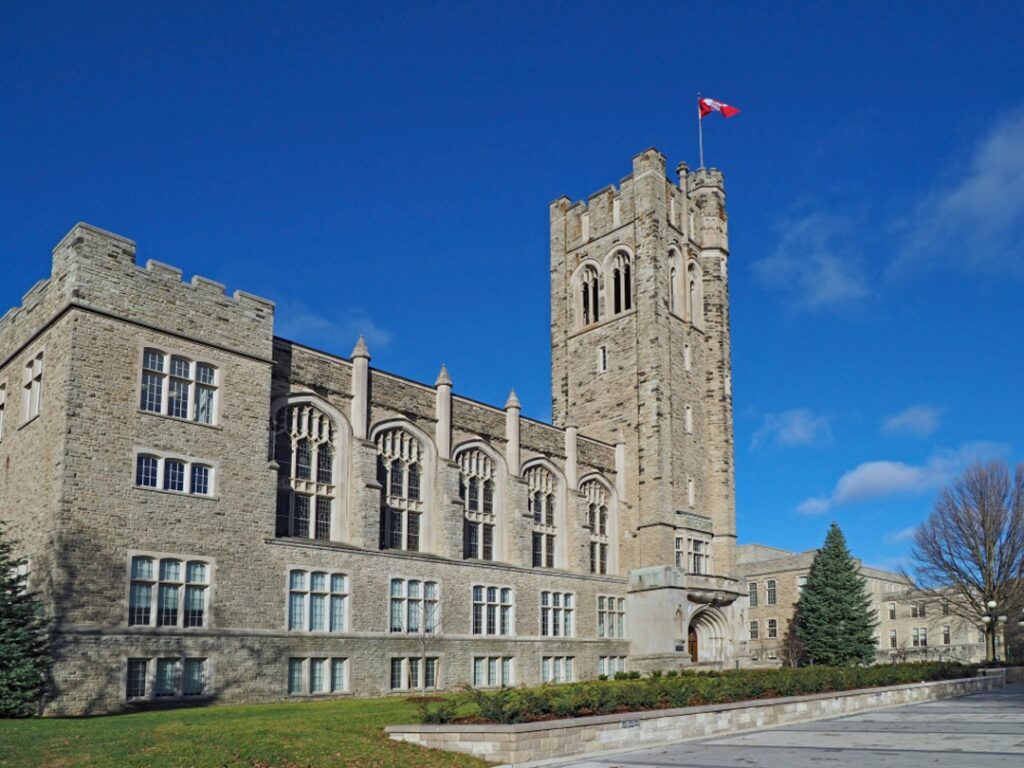Many explore Canada, the land of limitless possibilities yearly. It’s no news that the country is the perfect study destination for foreign students across the globe. Tertiary institutions in Canada contribute to the dreams of numerous students through their high-quality education programs.
Are you considering studying in Canada? Here are a few reasons to apply to any of the world-class educational institutions today:

Academic Excellence
Canadian universities consistently rank in the World University Rankings for their outstanding academic excellence. Between the QS World University Ranking agency and Times Higher Education World University Rankings, 30+ Canadian universities rank as the best in the world.
This could only be as a result of the high educational standards offered to scholars.
Research Opportunities
International students benefit from the immense research opportunities in fields like Medical Sciences, Natural Sciences, Agricultural Sciences, Engineering & Technology.
Universities in Canada are citadels for roughly 40% of the country’s research and development centers.


Affordability
Making a career investment through any tertiary institution in Canada is completely worth it!
Aside from the affordable tuition, Canadian colleges and universities are situated in cities and towns with affordable accommodation options.
Not to mention the numerous scholarship aids.
Pre-study & Post-study Work Opportunities
Canada is economical which enables its students to access pre-study and post-study work opportunities.
While studying, students can pick up part-time jobs with flexible work hours to earn extra cash.
After completing your studies, a Post Study Work Permit qualifies you to work in Canada for another three years.


Permanent Resident Opportunities
In Canada, foreign students are considered the most suitable candidates for permanent residency.
Since most international students have or are going through the education process of attaining in-demand skills, they are seen as ideal applicants for PR.
Students in Canada are young and learn the country’s official languages; which makes them the most qualified candidates for PR.
Best Country for Living
Canada ranks as the best country for quality living in the world. US News & World Report rates Canada in its overall best country for quality living.
This means international students coming into the country can be rest assured of an impressive standard of living while studying.


Cultural Diversity
As a multicultural society, Canada offers foreign students a culturally diversified studying environment.
Colleges and universities in Canada recognize and welcome scholars from all ethnic groups.
Canadian cities crawl with residents and citizens that express themselves in their native dialects when it calls for it.
Education System in Canada
Canadian territories and provinces take on the educational responsibilities of primary, secondary, and post-secondary education. From cradle to post-graduate studies and beyond, Canadian educational standards remains phenomenal. Canada continuously makes policies that enable foreign students to access world-class educational opportunities.
Today, Canadian degrees and diplomas help open doors to globally recognized career opportunities for foreign graduates. With the help of the Canadian government, international students can now benefit from undergraduate, graduate, and post-graduate study programs – across rural and sub-urban regions in Canada.

Certificates & Diplomas
Getting a certificate in Canada would usually take one year or less. Alternatively, foreign students can get their diplomas in at least 2 years. With a Diploma from a Canadian higher institution, students get a co-op internship with eligibility for a bachelor’s degree.
Associate Degree
In Canada, an associate degree is a two-year undergraduate program that allows qualified students to get admitted into associate universities. With a 60-credit pass score, the student would take his/her third-year coursework at an associate university.
Bachelor’s Degree
It takes between three and four years to bag a Bachelor’s degree in Canada. Professional degree programs with a four-year time frame include – two years of foundational studies and two years of specialized education.
Post-graduate Diploma & Certificate
The post-graduate level of education in Canada offers students a wide range of certificate and diploma options. These programs take between one and two years to complete with certifications that could help launch a master’s degree program.
Master’s Degree
A Master’s degree program can be completed in one or two years depending on the option of the certificate. You could either go for the Masters by Thesis program (with the mandatory submission of a research project) – or apply for the Masters by Non-thesis program.
Doctorate or PhD
Being a recognized doctorate or Ph.D. holder in Canada may take 4-7 years of studies in a specified field. After studying, approved students have to defend their works for qualification by a panel of specialists.

Cost of Studying and Living in Canada
For most foreign students, their scare begins and end with the cost of study and living abroad. Thankfully, education in Canada is affordable. Unlike most English-speaking nations, Canada offers low tuition to international students looking to study while providing quality education.
Looking at the cost of housing, transportation, food, and health insurance, Canadian cost of living is low.
Tuition Fee
Undergraduates coming into Canada to study shouldn’t expect to spend more than CAD 8,000 and CAD 30,000. With Post-graduate, Master’s, and Doctorate programs, the tuition fees vary depending on the stream or course. Ideally, an MBA program should cost between $30,000 and $40,000.
Transportation
Foreign students have the option of using public transportation like taxis, buses, subways, and trains to commute in Canada. To cost of transportation to their respected colleges or universities should range between CAD 100 and CAD 200.
Accommodation
In very few cases where the university doesn’t offer on-site accommodation, foreign students can rely on off-campus accommodation. On average, accommodation outside campus should cost between CAD 400 and CAD 700 monthly.
Health Insurance
Foreign students that intend to study in Canada must have health insurance. It’s a mandatory requirement for every program and the cost differ across various regions of Canada.
Living Expenses
The cost of socializing, grocery shopping, and emergencies in Canada for a student should cost 15,000. Communication expenses vary depending on the call or data plan. Library membership helps you to save a lot on books and supplies.
Work While Studying in Canada
Working part-time as you study is one of the reasons foreign students choose to learn in Canada. As students work part-time, they gather enough job experience as well as save up to support their cost of living.
More importantly, foreign students do not need work permits to secure a part-time job that pays.

Working On-campus
Full-time students with study permits and social insurance numbers (SIN) can work at their departments, library, or registrar’s office on campus.
Working Off-campus
Foreign students generally prefer working up to 20 hours every week off-campus. The jobs enable them to work for at least 20 hours weekly while school is in session and full-time on summer breaks.
Working Under the Co-op or Internship Programs
Foreign students generally prefer working up to 20 hours every week off-campus. The jobs enable them to work for at least 20 hours weekly while school is in session and full-time on summer breaks.
Are You Coming into Canada for Studies Soon? Then You’ll Need the Following
Pack Essentials
Start packing your essentials like medicine, certificates, laptop, mobile phone, travel document, student visa, extra clothing, and so on.
Search for Accommodation
If you can, get reliable accommodation before leaving your home country for Canada. Access the information provided on student websites to help narrow your accommodation search.
Organize Your Finance
While settling down in Canada, you’d definitely need extra cash for mobility, phone, and accommodation – which you can trust your GIC return to help you organize your finance.
